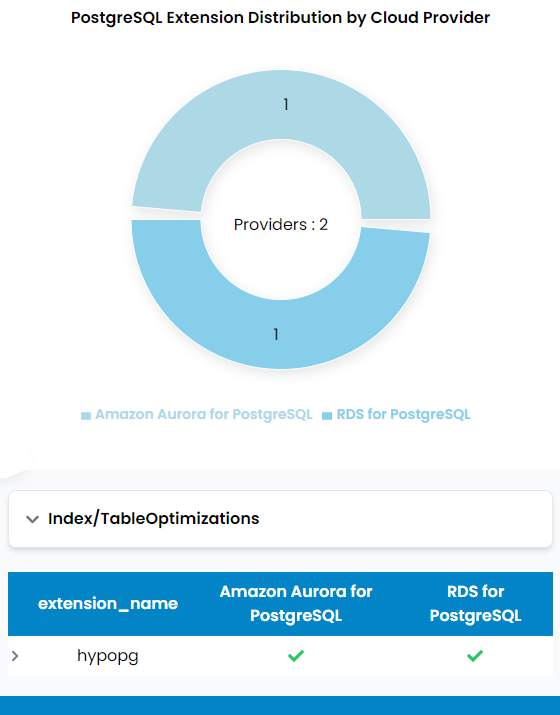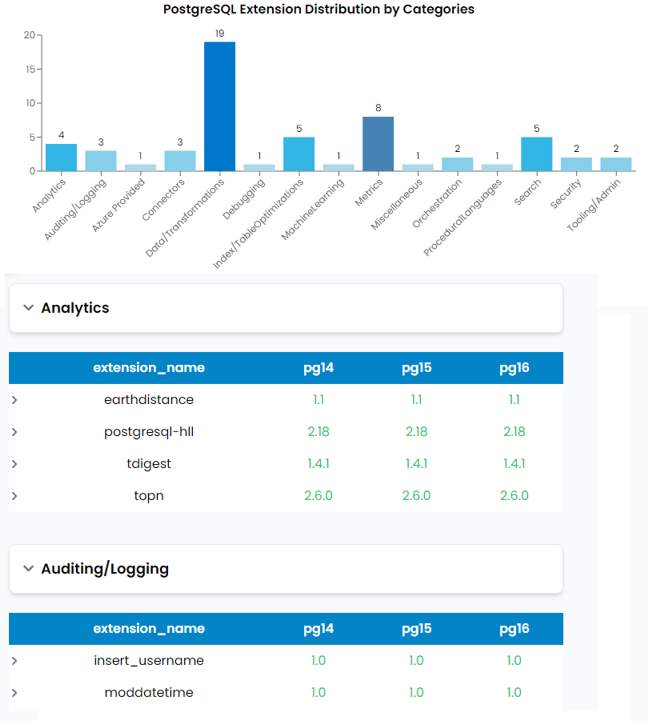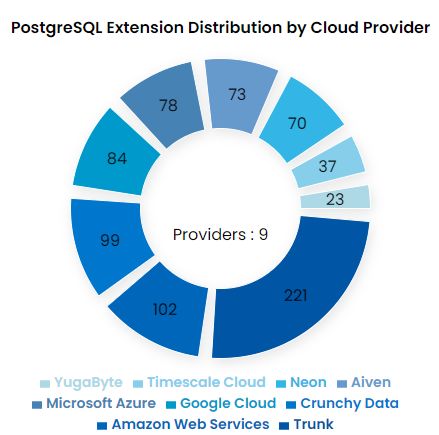| Pgextensions Index For PostgreSQL |
| Written by Nikos Vaggalis | |||
| Monday, 22 July 2024 | |||
|
pgextensions.org by DataCloudGaze is an online index of all PostgreSQL extensions that are available on all Cloud providers' managed instances. Why is that useful?
It is well known that the Postgres extension ecosystem is vast; you really can find anything, imagination is the limit. Pg_lakehouse is an extension which "Makes PostgreSQL Quack", that is, it makes Postgres assume the role of DuckDB analytical engine so that you can query data residing on a multitude of object Stores and Table formats. Given that plethora of extensions, the problem is how do you keep track of them. One way is through pgxman, the PostgreSQL Extension Manager, which is like npm, but instead of Javascript packages, it is for PostgreSQL extensions. It detects and streamlines extension operations and looks after dependency management, installation and un-installation, based on the local development environment. The issue, however, is that pxgman works only on local installations of Postgres. If you are on a cloud-managed instance, it could too, but in that case the provider has to add explicit support for it. pgextensions takes it a step further by cataloging every extension available for installation out of the box, grouped by cloud provider and the managed postgresql services they offer. As the official announcement states : One crucial aspect we always consider when migrating databases to PostgreSQL on the cloud is the support for various extensions across categories like security, performance, maintenance, and beyond. pgextensions provides that comprehensive and comparative information across major cloud providers, which comes handy when:
Let's put it to work. Let's say that I'm starting afresh and want to pick up a managed PostgreSQL service that supports the hypopg- "Hypothetical Indexes for PostgreSQL" extension (We've looked at hypopg's usefulness in Let PostgreSQL Pick An Index For You. Check that for more.) A very simple lookup gathers that both Amazon Aurora and RDS support this extension out of the box. Next let's assume that I own a Cosmos DB instance. What extensions can I install on its Azure premises? Furthermore if I scroll further down, I get all the details on each of those extensions. Finally, I want to find out which CDC extensions are available across all the providers and managed services. I gather that pg_ivm is available just on Crunchy and Neon, while wal2json on AWS and Azure. (We have also covered pg_ivm in "Materialised Views On Steroids".) So there you have it. If evaluating services across cloud providers or wanting to migrate from one to another, More InformationRelated Articlespgxman - PostgreSQL Extension Manager Pg_lakehouse Makes PostgreSQL Quack pg_ivm - Materialised Views On Steroids Let PostgreSQL Pick An Index For You
To be informed about new articles on I Programmer, sign up for our weekly newsletter, subscribe to the RSS feed and follow us on Twitter, Facebook or Linkedin.
Comments
or email your comment to: comments@i-programmer.info |






